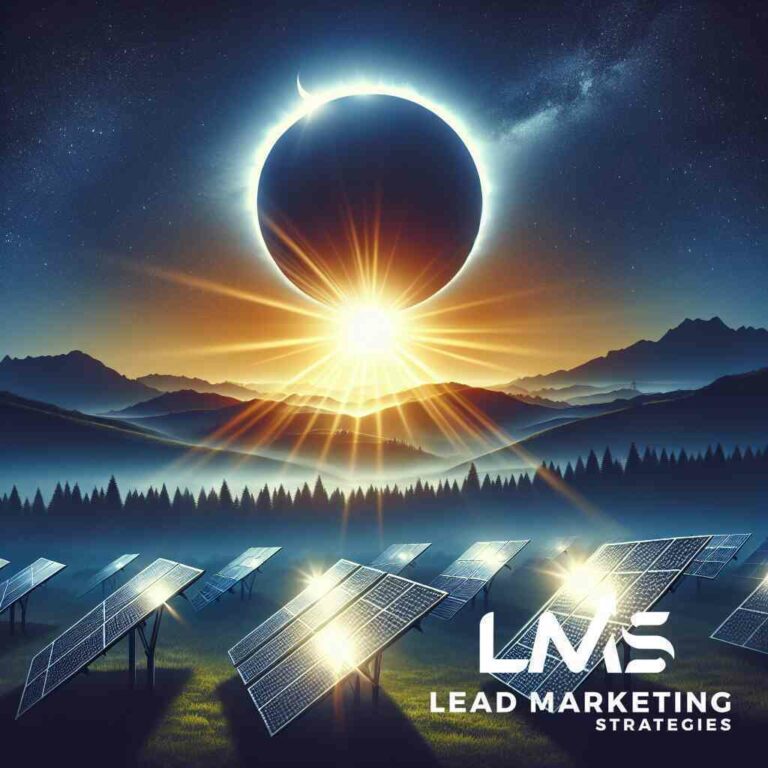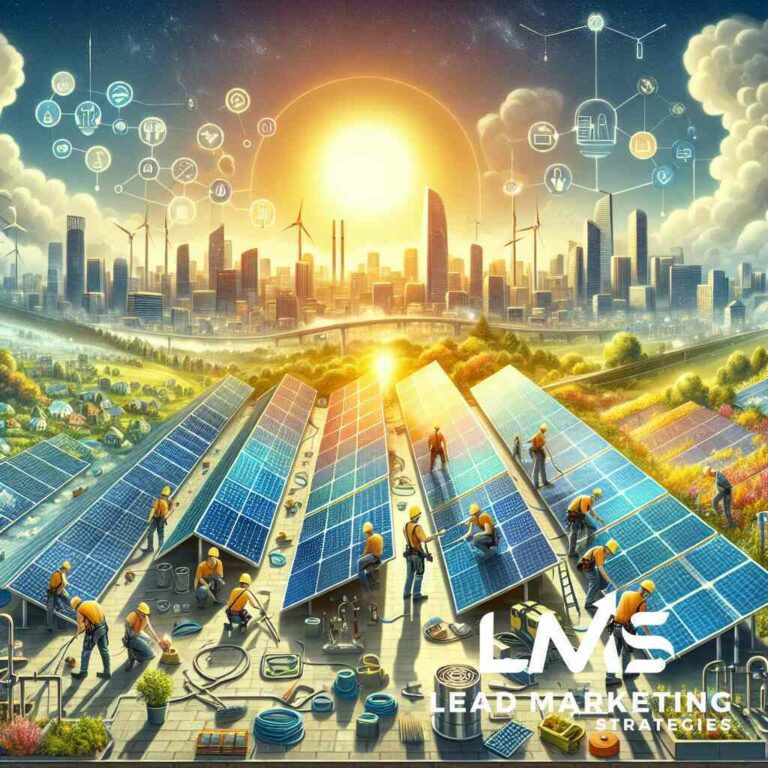Introduction to Green Certification in the Solar Industry
Understanding Green Certification
Green certification in the solar industry refers to a formal recognition process that verifies that certain products, services, processes, or systems meet predefined environmental and sustainable criteria. It primarily serves as proof that the electricity generated comes from renewable sources like solar energy. The certification is not only a badge of sustainability but also a pivotal marketing tool in today’s eco-conscious market. By adhering to specific solar sustainability practices, companies not only boost their environmental credentials but also reinforce their commitment to responsible business practices.
Importance of Green Certification for Solar Companies
For solar companies, obtaining green certification is no longer just an option but a strategic necessity. It amplifies credibility and trust among consumers who are increasingly environmentally aware and eager to support sustainable practices. Certifications like LEED, Green Seal, or Renewable Energy Certificates (RECs) signal to customers and stakeholders that a company is serious about reducing environmental impact. This enhances brand image and can significantly influence consumer decisions, setting certified businesses apart from competitors who do not prioritize sustainability.
Overview of Types of Green Certifications Available
Several types of green certifications are available to solar companies, each with distinct standards and impacts. Renewable Energy Certificates (RECs) are among the most relevant, providing companies with a mechanism to certify that the power they generate is from renewable sources. LEED certification offers a broader scope, evaluating the environmental performance of a building and its use of solar installations. Furthermore, other programs like Green Seal and Eco Labels focus on the sustainability of solar products themselves, certifying everything from the manufacturing processes to the efficiency and disposal methods. Exploring these certifications allows solar companies to not only improve their operational sustainability but also to leverage these credentials in their marketing strategies to attract environmentally-conscious consumers.
Navigating the Types of Green Certifications
Renewable Energy Certificates (RECs)
Renewable Energy Certificates (RECs) play a pivotal role in green certification within the solar industry. They act as a market-based instrument that certifies the bearer owns one megawatt-hour of electricity generated from a renewable energy source. For solar companies, RECs not only affirm their use of sustainable energy but also offer a crucial advantage in the competitive market by enhancing their sustainability credentials.
RECs serve as a critical component in tracking environmental benefits associated with renewable energy, and their procurement helps solar companies meet state-specific renewable energy standards or voluntary green marketing programs. Furthermore, trading RECs provides additional revenue streams for solar companies, making them a valuable element of solar renewable energy certificates.
LEED Certification in the Solar Industry
LEED (Leadership in Energy and Environmental Design) certification is a globally recognized symbol of sustainability achievement and leadership. In the solar industry, achieving LEED certification can significantly boost a company’s reputation, as it demonstrates a commitment to environmental stewardship and energy efficiency.
LEED certification evaluates numerous performance aspects, including energy use and air quality, and encourages the adoption of sustainable practices in all phases of solar project development. For solar businesses, LEED certification can enhance building performance, lower operating costs, and provide a competitive edge in the market. Integrating LEED principles not only attracts eco-conscious consumers but also aligns with broader corporate sustainability goals, as outlined in LEED certifications in the solar industry.
Green Seal and Eco Labels for Solar Products
Green Seal and Eco Labels represent two critical forms of certification that focus directly on the environmental attributes of products, including those utilized in the solar industry. These certifications assess various criteria such as resource efficiency, reduced toxins, and life cycle impacts, offering third-party validation of the product’s eco-friendly advantages.
For solar companies, having products certified with Green Seal or Eco Labels builds trust with customers by substantiating their goods’ environmental claims. This is especially important in a market increasingly dominated by consumers who prefer sustainable options. Additionally, these certifications often lead to a preference in procurement processes, particularly in government and large corporate procurements, thus opening up new market opportunities for certified products. By highlighting Eco-friendly certifications for solar products, companies can assert their leadership in sustainability and attract a broader customer base.
Benefits of Green Certification for Solar Companies
Enhancing Brand Image and Trust
For solar companies, the journey towards sustainability is not just about environmental responsibility but also about building a reputable brand. Green certifications play a central role in this process by signaling to stakeholders and customers that the company adheres to high environmental standards. When a solar company achieves, for example, a sustainable solar power certification, it communicates a commitment to sustainability excellence, enhancing the brand’s image.
This level of certification fosters trust and credibility among consumers, investors, and partners by proving that the company is truly ‘green’ and not merely indulging in greenwashing tactics. It verifies that the business is contributing positively to the environment by reducing carbon footprints and promoting renewable energy usage. This trust builds customer loyalty, which is crucial in this competitive market, leading to enhanced brand value and resilience in the face of shifting market dynamics.
Access to New Markets and Customer Segments
Green certification does more than burnish a company’s image; it also opens doors to new markets and customer segments that prioritize environmental values. As global awareness of environmental issues grows, more consumers and businesses are choosing to engage with companies that can demonstrate a tangible commitment to sustainability. By obtaining certifications such as LEED or RECs, solar companies can significantly widen their market appeal.
These credentials allow companies to tap into niche markets that may have been inaccessible previously, including governmental and large corporate contracts that require a certain degree of sustainable certification. Moreover, certifications like Green Seal and Eco Labels specifically attract environmentally conscious consumers, providing a competitive edge in eco-friendly market segments. This broadened market access not only boosts potential sales but also contributes to long-term sustainability goals.
Financial Incentives and Rebates
Aside from market and brand advantages, green certifications also unlock various financial incentives that can contribute significantly to a solar company’s bottom line. Governments around the world encourage the adoption of green technologies by offering tax rebates, grants, and subsidies to certified companies. These financial benefits are essential, as they lower the overall investment needed for sustainable practices and technologies, facilitating quicker returns on investments.
In addition, green certification can lead to operational cost savings. Energy-efficient systems and processes, which are often a requirement of such certifications, ensure that companies save on energy, water, and waste management costs. Moreover, trading Renewable Energy Certificates (RECs) can become a substantial revenue source, as these certificates can be sold or traded on environmental markets.
Through these financial advantages, solar companies not only contribute to environmental sustainability but also achieve economic gains, creating a win-win scenario that promotes continued growth and sustainability in the industry.

Impact of Green Certification on Solar Marketing Strategies
Incorporating Green Certificates in Marketing Materials
Green certifications provide a substantial advantage in the competitive solar market, offering solar companies a tangible way to demonstrate their commitment to sustainability. By incorporating these certifications into marketing materials, companies can effectively communicate their eco-friendly attributes to their target audience. This inclusion not only enhances the company’s reputation but also aligns with consumer values, particularly those who prioritize environmental responsibility.
For instance, showcasing Renewable Energy Certificates (RECs) in brochures, websites, and social media can transparently display a company’s contribution to reducing carbon emissions. Tailoring this approach within solar marketing materials enhances brand trust and encourages consumer engagement by highlighting the direct environmental impact of customers’ choices. This strategic display of green credentials serves not just as an informational tool but as a differentiation strategy in a crowded marketplace.
Targeted Marketing for Eco-conscious Consumers
The rise of eco-conscious consumerism has created a niche market segment that looks explicitly for sustainable products and services, including solar energy solutions. Green certifications such as LEED or Green Seal are pivotal in attracting these environmentally aware customers. Utilizing these certifications in targeted marketing campaigns can significantly impact a solar company’s perception as a leader in sustainable practices.
Targeted marketing that emphasizes a company’s green certifications can be executed through various channels, including eco-friendly solar marketing strategies. These strategies involve highlighting the sustainable aspects of products in online content, PPC advertising, and social media platforms. Such strategies are not merely about promoting a product but about creating a story that resonates with the values of eco-conscious consumers, thereby fostering a deeper connection with the brand.
Case Studies: Successful Green-Certified Solar Campaigns
Real-world examples of successful marketing campaigns by green-certified solar companies provide insightful lessons on practical strategies and potential outcomes. For instance, a solar company that achieved LEED certification launched a comprehensive digital marketing campaign that emphasized their sustainable construction processes and energy-efficient practices. This campaign not only increased their visibility but also enhanced consumer trust, leading to a significant boost in sales and customer loyalty.
Furthermore, another solar company utilized its Green Seal certification to engage with potential clients through seminars and webinars discussing the certification’s impact on their product’s life cycle and environmental footprint. These direct engagement strategies reinforced their reputation and cemented their position in the market as a sustainable choice for consumers.
By examining such case studies, solar companies can glean valuable strategies that can be adapted and applied to their marketing initiatives. Such examples not only illustrate the direct benefits of leveraging green certifications in marketing but also highlight the broader implications on brand loyalty and market growth.
Solar SEO and Green Certification
Optimizing Solar SEO with Green Keywords
In the competitive solar market, effective SEO strategies can transform your online presence. By integrating green keywords into your content, you focus your efforts on a niche market that values sustainability. For solar companies, incorporating terms like “green certified solar products,” “sustainable energy certifications,” and “eco-labels solar businesses” can significantly boost your website’s relevance and search engine ranking.
Tailoring your SEO practices to emphasize green certification not only aligns with your brand’s environmental goals but also meets consumer demand for responsible energy solutions. Leveraging sustainable energy certifications also enhances your credibility, showing that your company adheres to necessary solar industry standards on green certifications. Remember, search engines like Google prioritize content that speaks directly to the interests of searchers, increasing visibility for those who are explicitly looking for sustainable options.
Improving Online Visibility through Sustainability Reporting
Sustainability reporting has increasingly become a critical aspect of corporate transparency, allowing companies to communicate their environmental achievements and initiatives through means like sustainability reporting on their website. For solar companies, making these efforts visible online can dramatically improve brand visibility and attract a broader audience. Utilizing effective website design to showcase your green certifications, sustainability metrics, and environmental impacts helps engage a knowledgeable customer base looking for eco-conscious solutions.
Integrate detailed sustainability reports into your website’s architecture to articulate your commitment to sustainability. Stylish and intuitive website design for sustainability reporting serves not only to inform but also to inspire site visitors, guiding them through your journey towards environmental responsibility. This proactive approach in digital storytelling ensures that your potential customers see the total value of partnering with a green-certified solar provider.
Content Marketing: Highlighting Green Certifications
Content marketing offers solar companies a powerful tool to articulate their commitment to sustainability and differentiate themselves in a crowded market. By focusing content around your green certifications, you underscore your company’s dedication to sustainable practices and lure eco-conscious consumers. Create detailed blog posts, infographics, and videos that showcase how your certifications impact product quality, company operations, and overall environmental contributions.
This content should not only inform but also connect on an emotional level, showing real-world implications of sustainable practices. For instance, sharing case studies of successful projects that highlight your environmentally certified solar products near California can attract regional markets and show the tangible benefits of choosing a green-certified solar system. Transparent and educative content builds trust and authority in your niche, driving engagement and conversions through informed content strategies.
Eco-Friendly Solar Solutions and Product Development
Developing Green Certified Solar Products
In the realm of sustainable development, solar companies are increasingly recognizing the importance of green certification for their products. Green-certified solar products not only adhere to stringent environmental standards but also offer significant advantages in the marketplace. By investing in the development of products that meet eco-friendly standards, solar businesses can enhance their reputations as leaders in sustainability.
When developing green-certified products, companies must consider every aspect of the product’s lifecycle-from the sourcing of materials to the manufacturing processes and end-of-life recycling. This holistic approach ensures that the products are genuinely sustainable and minimizes their environmental impact. For instance, using non-toxic materials and renewable resources can make a significant difference in achieving green certification.
Additionally, leveraging solar marketing strategies enhances the visibility of these green products. Proper branding and targeted solar advertising strategies can help communicate the environmental benefits and certifications of these products to a broader audience, ultimately driving sales and encouraging widespread adoption of green technology.
Innovation in Sustainable Solar Technology
Innovation plays a crucial role in driving the adoption of sustainable solar technology. As the demand for renewable energy sources increases, solar companies must continually evolve and improve their technologies to stay competitive and meet consumer expectations. This involves not only enhancing the efficiency of solar panels but also integrating innovative technologies that lead to better energy management and storage solutions.
Advancements such as bifacial solar panels, which capture sunlight from both sides and photovoltaic (PV) cells with higher conversion efficiencies are examples of how innovation can significantly impact the sustainability of solar technology. Additionally, the integration of Internet of Things (IoT) technology in solar systems allows for more intelligent energy consumption, optimizing power usage and reducing waste.
These innovative practices not only help reduce a solar company’s carbon footprint but also play a vital role in positioning it as a forward-thinking leader in green technology. This is especially critical as stakeholders, including investors and consumers, increasingly support businesses that contribute positively to the environmental movement.
Solar Product Lifecycle and Environmental Impact Reduction
The environmental impact of solar products extends beyond the initial phases of production and installation. A well-rounded approach to sustainability considers the entire lifecycle of the product, including its operational efficiency and the implications of its disposal or recycling. Solar companies committed to reducing the environmental impact of their products typically follow principles of circular economy, which emphasize the importance of reusing, recycling, and refurbishing.
For example, designing solar panels that are easier to disassemble at the end of their lifecycle can facilitate more efficient recycling processes. This not only reduces waste but also helps conserve valuable resources like silicon, silver, and aluminum used in solar cells. Moreover, recent developments in solar recycling technology indicate a promising future where solar panels can be recycled with higher efficiency, thereby substantially reducing landfill waste.
Solar Marketing Strategies supports these endeavors by providing specialized solar marketing services that emphasize a company’s commitment to sustainability and innovation. By effectively communicating a company’s green compliance and recycling initiatives, we can enhance consumer trust and attract more environmentally conscious customers.
Tackling these aspects of product development and lifecycle management not only promotes environmental responsibility but also aligns with global efforts to combat climate change, proving crucial for sustained business growth in the increasingly competitive solar industry.
Green Compliance and Corporate Sustainability in Solar Companies
Regulatory Compliance and Green Certification
In the realm of solar energy, green compliance not only reflects adherence to environmental standards but also serves as a gateway to enhanced market credibility and business opportunities. For solar companies, regulatory compliance coupled with green certification, such as Renewable Energy Certificates (RECs), is crucial. These certifications ensure that a company is not only abiding by current environmental regulations but is also committed to sustainable practices.
By maintaining compliance with environmental laws and regulations, solar companies mitigate risks associated with non-compliance, including legal penalties and reputational damage. Moreover, receiving green certification like the LEED certification solar industry recognizes a company’s efforts in sustainability, firmly positioning it as a responsible leader in the solar sector. This is not just beneficial in strengthening stakeholder trust but also essential for staying competitive in an increasingly eco-conscious market.
Sustainability Goals and Corporate Social Responsibility (CSR)
Setting ambitious sustainability goals is at the heart of corporate social responsibility (CSR) in the solar industry. For solar companies, this involves establishing targets that go beyond mere compliance to reduce the environmental impact of their operations and products actively. By integrating CSR into their business models, companies not only contribute positively to the environment but also enhance their corporate image and stakeholder relations.
Achieving these goals often requires employing innovative technologies and practices, like developing more efficient solar panels or participating in recycling programs for used solar equipment. By advertising these CSR efforts, especially initiatives that have achieved tangible results, solar companies can strengthen their brands and attract and retain customers who value environmental responsibility.
Furthermore, CSR in the solar industry is not just about environmental issues but also involves community engagement and workforce development. This broad approach ensures that the benefits of solar energy expansion are widely distributed, enhancing the overall social impact of the company’s operations.
Stakeholder Engagement in Sustainable Practices
Active engagement with stakeholders is critical for solar companies aiming to foster sustainability within their operations and corporate culture. This involves regular communication with customers, investors, local communities, and governmental bodies about the company’s sustainability initiatives and progress toward environmental goals.
Through transparent reporting and open dialogues, solar firms can strengthen their relationships with their stakeholders, gain support for sustainability projects, and receive valuable feedback for continuous improvement. Initiatives like incorporating stakeholders in decision-making processes or organizing community solar projects enhance the inclusive nature of a company’s sustainability efforts.
In addition, stakeholder engagement often leads to collaborations that drive collective action on sustainability issues, such as partnerships with other firms to develop new green technologies or initiatives with governments to promote solar energy adoption. These collaborations not only amplify the impact of individual companies’ CSR efforts but also contribute to the overall advancement of the solar industry towards sustainable development.
By demonstrating leadership in green compliance, pioneering CSR, and engaging stakeholders in meaningful ways, solar companies not only bolster their market position but also contribute significantly to the global transition towards sustainable energy.

Creating a Sustainable Growth Strategy for Solar Businesses
Long-term Planning with Green Certification
In the competitive landscape of the solar industry, long-term planning centered around green certification proves to be an invaluable asset. Solar companies that anticipate future market shifts by embedding sustainable practices into their core business strategies foster incredible growth. Not only does this strategic foresight address evolving regulatory requirements, but it also meets the growing consumer demand for environmentally responsible energy solutions.
Certifications such as LEED or Renewable Energy Certificates (RECs) aren’t just accolades; they are testaments to a company’s commitment to sustainability and can be pivotal during policy changes or incentives for renewable energy adoption. By planning long-term with these certifications in mind, solar companies can ensure they stay ahead, not only compliant but leading in their market.
Furthermore, integrating green certification into long-term strategy aids in building resilient business structures capable of withstanding economic fluctuations and changing environmental policies. This not only stabilizes the business model but also positions the company as a leader in the shift towards a sustainable future.
Solar Business Growth through Environmental Leadership
Adopting environmental leadership as a pillar for business growth is a transformative strategy for solar companies. Those who take charge in their commitment to sustainability often witness enhanced brand credibility and trust among stakeholders. This leadership is characterized by adopting and promoting green certifications, such as the prestigious LEED status, or by ensuring their products and practices meet the Green Seal standards.
Companies that pioneer environmental initiatives such as significant reductions in waste, energy efficiency improvements, or substantial contributions to the grid through renewable sources have their position as industry leaders. This not only galvanized consumer and investor confidence but also set a competitive benchmark in the market. By embedding environmental leadership into their core values, solar companies can expand their influence and drive significant market penetration.
The impact of digital marketing techniques for green energy firms further empowers solar companies to broadcast their green achievements and innovations to a global audience, thus garnering additional support and creating a more significant impact on the industry’s sustainable development.
Sustainability Metrics and Performance Indicators
For solar firms, explaining their sustainability through clear metrics and performance indicators is essential for accurate reporting and strategy refinement. These metrics often encompass areas such as the amount of solar energy generated, the tonnage of carbon emissions saved, or the percentage increase in the use of recycled materials. By setting and regularly reviewing these performance indicators, companies can make informed decisions that enhance their operational sustainability.
Regular monitoring and reporting also keep businesses accountable and transparent to stakeholders, an important factor for consumer trust and investment attraction. Advanced solar analytics services, like those offered by Solar Marketing Strategies, can help gain insightful data that enables precise decision-making and improved performance benchmarks in sustainability.
Additionally, these metrics serve as valuable tools for solar marketing services, enabling companies to communicate their sustainability achievements in a quantifiable manner. This not only appeals to environmentally conscious consumers and partners but also reinforces the company’s reputation as a responsible leader in solar technology.
By employing effective sustainability metrics and performance indicators, solar businesses enhance their operational efficiencies and boost their marketability and overall corporate reputation in the realm of green energy solutions.
Conclusion: Future Trends of Green Certification in Solar Power
Emerging Standards and Certifications
As the solar industry continues to evolve, so too do the standards and certifications aimed at promoting sustainability and environmental responsibility. The future is likely to witness the introduction of more stringent and diverse certification criteria designed to address the nuanced aspects of sustainability and carbon footprint reduction in solar power generation. Emerging standards might focus on the reduction of lifecycle emissions, enhanced efficiency of solar panels, and incorporation of sustainable materials into product design.
These new certifications will likely set higher benchmarks for eco-efficiency and could incorporate advanced technological measures, such as blockchain, for enhanced traceability of renewable energy production. Recognizing these trends early can offer solar companies a significant competitive edge, as these standards will not only cater to regulatory compliance but will also meet the increasing demand from consumers for transparent and accountable green practices.
Potential Challenges and Opportunities Ahead
The pathway to widespread adoption of green certifications is fraught with both challenges and opportunities. One of the significant challenges includes the cost associated with upgrading technology and processes to meet stringent environmental standards. However, this also presents an opportunity for innovation in cost-effective and resource-efficient technologies that could revolutionize the industry.
Additionally, as global markets adjust to the standards set by green certifications, companies may face varying regional regulations, requiring a flexible approach to compliance. On the flip side, enterprises that effectively navigate these waters will likely find new markets and consumer segments eager for certified sustainable products. Also, partnership opportunities with governments and NGOs focused on renewable energy could emerge, offering further incentives for companies to pursue green certifications.
The interplay between policy and technology will be crucial, as supportive regulatory environments can significantly lower barriers to entry and accelerate the adoption of green practices. Companies proactive in adopting and optimizing solar SEO through sustainability will find themselves well-positioned in search engine rankings and consumer perceptions, enhancing both visibility and credibility.
The Road Ahead for Solar Companies Embracing Sustainability
For solar companies looking to the future, embracing sustainability through green certifications is not just about compliance but about steering the industry towards a more sustainable and environmentally friendly path. Companies that integrate sustainability into their core business strategies are likely to see long-term benefits, including enhanced brand loyalty, investor attractiveness, and a stronger competitive position in global markets.
Investing in green technologies and practices now will prepare solar companies for future industry standards and consumer expectations. Moreover, these investments will aid in mitigating risks associated with environmental and regulatory changes. Companies that can transparently demonstrate their ecological impact through detailed sustainability reporting and effective stakeholder engagement will lead the charge toward a greener future.
As the solar industry moves forward, it remains a beacon of innovation and sustainability. The companies that will thrive are those that view green certification not as a hurdle but as an integral part of their growth strategy, underscoring a commitment to sustainability that resonates deeply with modern consumers and aligns with global efforts to combat climate change. By positioning themselves as leaders in sustainability, solar firms not only enhance their marketability but also contribute to a sustainable global energy future.
Frequently Asked Questions
Question: What types of green certifications do you recommend for sustainable solar companies to enhance their market credibility?
Answer: For solar companies aiming to boost their market credibility, we recommend pursuing LEED certification and Renewable Energy Certificates (RECs). LEED certification demonstrates a comprehensive commitment to environmental stewardship, enhancing energy efficiency and sustainability in solar installations. RECs provide proof that electricity is generated from renewable sources, affirming your company’s dedication to sustainable energy use. Both are vital in positioning your business as a leader in the green energy certification arena.
Question: How can obtaining green certifications influence the marketing strategy of a solar company?
Answer: Obtaining green certifications like the Green Seal or LEED can significantly enhance your marketing strategy. These certifications serve as powerful tools in conveying a commitment to sustainability, which is crucial for attracting eco-conscious consumers. By highlighting these eco-labels in your marketing materials, from solar PPC advertising to solar social media marketing, you reaffirm your position as a sustainable choice in the competitive market. This not only helps in building brand trust but also broadens your customer base, which prioritizes environmental responsibility.
Question: In the blog post, ‘What Does Green Certification Mean for Solar Companies?’ How does green certification add to a solar firm’s competitive edge?
Answer: In the blog post ‘What Does Green Certification Mean for Solar Companies?‘, it is highlighted that green certification, such as LEED and RECs, provides solar companies with a competitive edge by certifying their commitment to sustainable practices and renewable energy usage. This enhances your brand’s image and trust among consumers, making your business a preferred choice. Moreover, certifications can lead to financial incentives like rebates and tax benefits, making your offerings more attractive and affordable to potential customers.
Question: Can you elaborate on how Solar Marketing Strategies assist solar companies in leveraging their green certifications for better online visibility?
Answer: At Solar Marketing Strategies, we specialize in integrating your green certifications into your overall solar digital marketing strategy to enhance online visibility. By using targeted keywords such as ‘sustainable solar companies‘ and ‘eco-friendly solar solutions’ in your SEO efforts, we ensure your certifications are prominently displayed and marketed. Our approach includes crafting detailed sustainability reporting on your website, optimized with solar SEO practices, and creating compelling content that showcases your environmental commitments and certifications, ultimately attracting a more engaged and conscientious audience.




